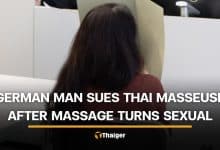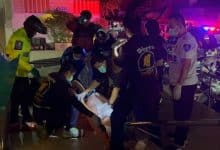Sold or stolen – South Korean adoptees seek truth

South Korean adoptees seek the truth as the country’s Truth and Reconciliation Commission (TRC) begins to look into the stories of hundreds of adoptees taken to Europe and the United States.
Thousands of South Korean “orphans” were adopted by Western families in the latter part of the 20th century, many of whom suspect that their origins were falsified or obscured as demand for cute Asian babies greatly outstripped the legal supply.
This could be South Korea’s most comprehensive analysis of foreign adoptions yet, after years of anger and grief on both sides over broken families and sold children. The history of overseas adoption in Thailand is likewise stained by accusations of fraud though the situation has improved somewhat.
South Koreans are believed to be the world’s largest diaspora of adoptees. Since the 1960s, about 200,000 South Koreans — mostly girls — were exported for profit, paid for mostly by wealthy white families in the US and Europe during the 1970s and ′80s.
On Tuesday, the TRC decided to examine cases of 34 children who were sent to Belgium, Denmark, Germany, the Netherlands, Norway, and the US from the 1960s to the early 1990s. The children, now all grown up, claim that they were wrongfully taken from their families, (with or without the family’s consent) through forgery and bribery.

They were chosen from among the 50 applications made in August through the Danish Korean Rights Group, led by attorney Peter Møller, himself an adoptee.
The adoptees want agencies to be called to account for the falsification and manipulation of records and for proceeding with adoptions without the consent of birth parents. And they want to know whether the government was complicit. The “orphans” want to know whether their adoptions were fuelled by donations from adoptive parents that drove agencies to create their own supply chain.
The commission said its decision to investigate the 34 cases came after it confirmed through records that the adoptees were sent to the West through manipulated records that falsely described them as orphans despite the existence of biological parents, or faked their identities by borrowing the details of a third person.
Applications filed by Møller’s group now number over 300, and dozens of adoptees from Sweden and Australia are expected to join them on Friday, the deadline for investigation requests.
Latest Thailand News
Follow The Thaiger on Google News:


























